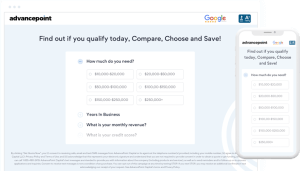Business Expansion
Preparing For Merchant Cash Advance Application
Applying for a merchant cash advance is relatively easy. But, before applying, it’s crucial to understand the application process, the cost of a cash advance, and what could stop you ...
Construction Business Line of Credit: A Step-by-Step Guide
Best uses of business line of credit: A construction business line of credit not only ...
Same Day Business Loans: How to Get an Instant Business Loan in 24 Hours
What are Same Day Business Loans? According to The Cambridge Dictionary, same-day business loans is ...
How to Get a Secured Business Line of Credit: Options, Terms and Requirements
A secured business line of credit is an open revolving line (like a credit card) secured by ...
Business Guides
Loans for Sole Proprietors: Explore Your Options and Learn How to Apply When You Are Self-Employed
Most businesses can operate as a sole proprietor which is ideal for professions that generally do not entail complex organizational structures or the necessity for multiple owners, such as: For ...
What is Unsecured Working Capital? How to Get Working Capital Loan for Small Business
Each product has its own unique product features, rates, terms, conditions, and max loan amount, ...
4 Reasons Your Business Needs to Increase Working Capital
A company’s working capital is ever-changing — with each month, businesses need enough cash to ...
Is It Hard to Get SBA Loans For Small Businesses?
Establishing a good working capital ratio can be challenging when operating a small business — ...
Business Management
How to Use a Business Loan to Combat Inflation
Inflation is in the news every day and most consumers and business owners are concerned about the rising costs of goods and services and how that will impact their lives ...
How to Get Working Capital for Restaurants
For restaurant owners, a restaurant is not just a business that generates profit; it’s about the love of food and the restaurant experience...
How to Stay Motivated as a Small Business Owner
As an entrepreneur and startup business owner, your day-to-day motivation is your fuel. During the ...
The Pros and Cons of the Most Popular Payroll Software
Small businesses and large corporations alike have to use payroll software to keep track of ...














